HIGHLIGHTS
GET TO KNOW US
GET INVOLVED
MEDIA
REGIONS
California, Georgia, Chicago, North Carolina, New Orleans, Puerto Rico, Kentucky, Navajo Nation, Washington, D.C., Hawaii
INTERNATIONAL

VP Programs – CORE (Community Organized Relief Effort)
These days, it’s not hard to see a news headline of a new climate disaster unfolding somewhere across the globe. From devastating fires in the middle of winter in Texas fueled by years-long drought to a catastrophic cyclone in southeast Africa, these events have sadly become the new normal.
In September 2022, Pakistan experienced unprecedented, devastating floods that caused widespread damage across the country’s southern regions. Heavy monsoon rains inundated rivers and overwhelmed existing local infrastructure, leading to extensive flooding in rural, low-lying villages, impacting roughly 33 million people and killing at least 1,700.
Despite limited coverage of the crisis at the time, and absence of coverage in today’s headlines, the effects of the flooding are still felt today.
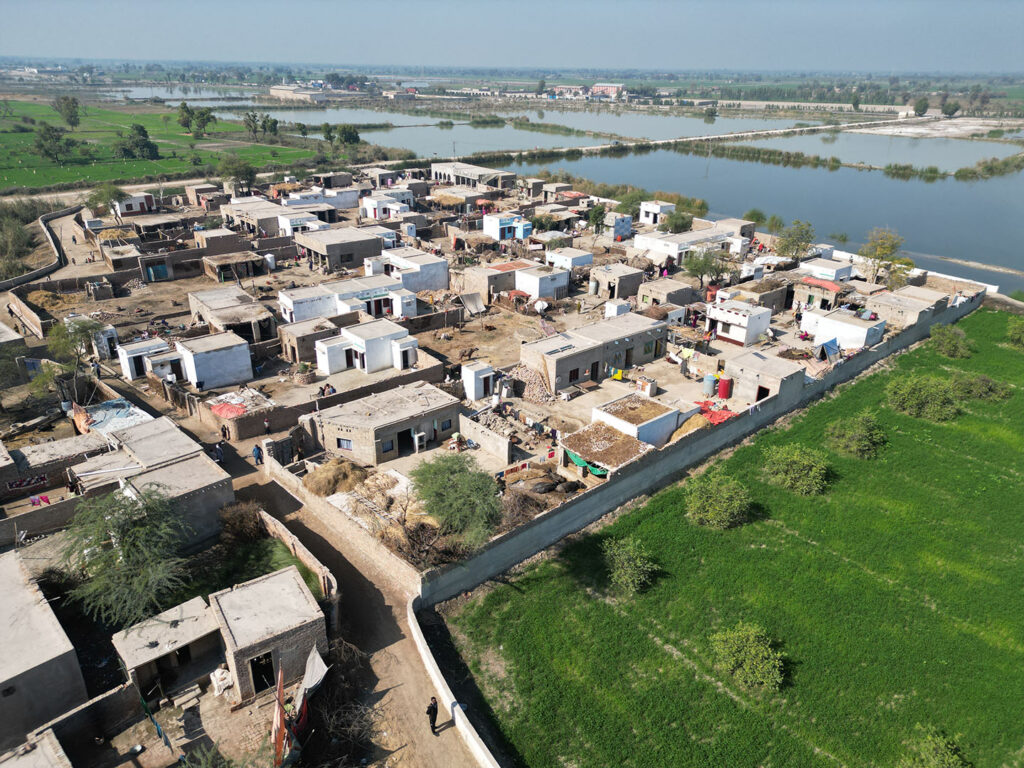
On overview of Dodha where CORE has helped rebuild homes and safeguard the community. But, even two years on from the devastating floods, the threat of future catastrophe remains (CORE Photo by Liam Storrings)
These floods underscored Pakistan’s vulnerability to natural catastrophes, highlighting the need for improved preparedness, including early warning systems and resilient infrastructure.
After CORE (Community Organized Relief Effort) completed its initial disaster response in which we supported 80,000 people with urgent support, including food, hygiene kits, medical support, and temporary shelters, we embarked on a mission to develop flood mitigation measures to protect villages from future floods.
The process involved working directly with two communities that had been submerged in 2022, Dodha and Hashim Chouhan Naushahro Feroze, in Sindh Province. Emblematic of most in the region, these two villages are in low-lying, flat areas, meaning that when they flood, which they’re at constant risk for, the water has nowhere to go.
So, when the rain came, people like the Azeem family in Dodha, lost everything. Flood waters destroyed homes, contaminated wells, and ruined the fields that many community members relied on for work.
Now, with little income from work, many only had a few pieces of flatbread each day to survive.
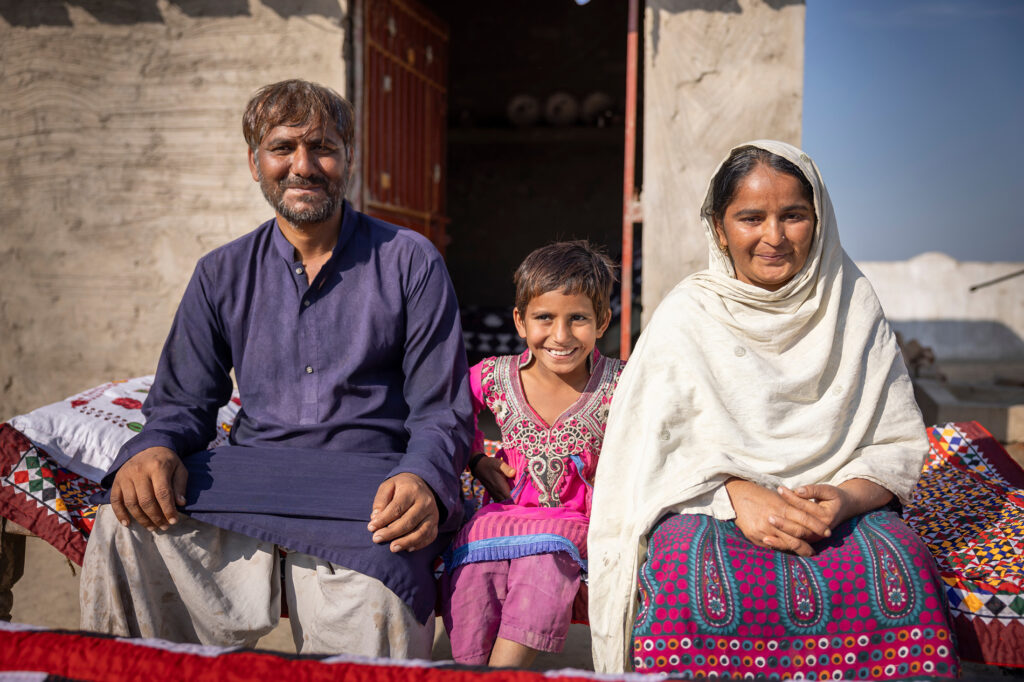
The Azeem family outside of their newly reconstructed home in Dodha. (CORE Photo by Liam Storrings)
Worse still, the standing water introduced mosquito-borne illnesses like malaria and led to the deaths of animals these villages heavily relied on for additional income. So, when CORE distributed mosquito nets, residents often sought to protect their livestock before themselves.
In the aftermath, families tried moving forward by rebuilding their homes out of the only readily available material, mud, even though they knew it wouldn’t withstand future flooding. Knowing this wouldn’t last, CORE and the local nonprofit Riverside Development Organization (RDO) came forward to help rebuild.
Together, we repaired 28 houses and built 23 sturdy stone homes for 51 families, including the Azeem family (pictured above), giving each of them a safe, stable place to begin their lives again.
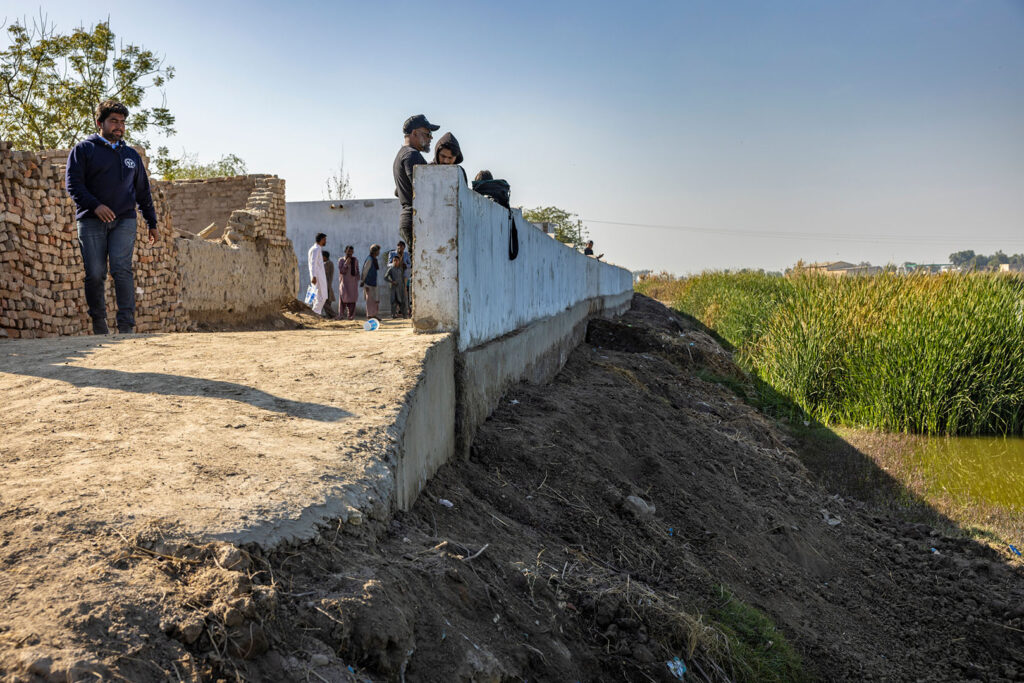
The new bund wall in Dodha will protect residents from future flooding. (CORE Photo by Liam Storrings)
However, through these efforts, it became painstakingly clear that for affected communities to recover fully, they needed to mitigate the adverse impacts of further flooding.
Continuing to work with RDO and village members, CORE honed in on several key innovative mitigation measures that would serve as a guidepost for other villages and any future projects in the region.
Hand in hand, we had the novel but daunting idea of elevating individual properties within the villages by placing down feet of new soil and dirt. One by one, houses, storage sheds, toilets, and animal shelters were carefully raised up above the 2022 flood line. This meant that these structures would hopefully be spared when the next major flood came.
And instead of just relying on that, which would leave structures safe but the village infrastructure destroyed, CORE built non-permeable 4-foot-high bund walls around the periphery of the villages, forming a solid barrier to keep the rising waters at bay. To ensure these walls would withstand future floods, locally controlled, strategic outlets were provided to drain flood water that may accumulate inside the village.
Along with walls, villagers gave up precious land to construct roads along the walls and in the interior to enable easy evacuation of themselves and their animals. These approaches are certain to ensure the safety and security of these two low-lying communities when the next major flooding event occurs.

Diagram to illustrate CORE’s innovative work in Pakistan.
Beyond these crucial flood-prevention measures, CORE wanted to support villagers further by providing them with year-round access to clean water. So, we reconditioned existing boreholes and installed new water pumps. CORE also provided every home with above-ground water storage tanks to capture this vital resource and ensure constant access.
Each of these actions, in tandem, is vital in building community resilience by safeguarding residents from potentially dangerous flooding, which, given the effects of climate change, will likely occur more frequently. The families we helped shared the sentiment that our interventions restored a sense of ease and security, making them feel assured about the future.
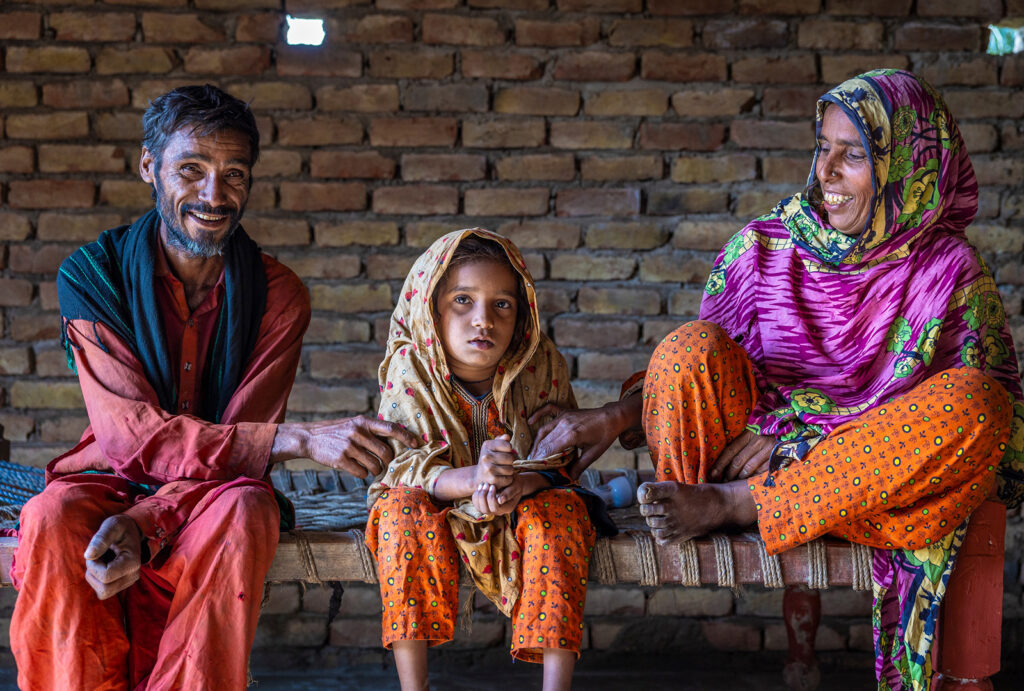
Ghulam and his family inside their new, sturdy stone home built through the help of CORE & RDO (CORE Photo by Liam Storrings)
Ghulam (pictured above), a resident of Hashim Chouhan Naushahro Feroze, said, “Let the flood come or rainfall; now our work is strong, now we care least about it. Earlier we were disturbed about where to go, but now we don’t need to go anywhere else. Now, we will ask Allah to send flood and rainfall.”
While we at CORE are proud of our work in Pakistan, we know millions more people from vulnerable communities worldwide are still at risk of climate change-induced disasters, including those living in hundreds of other low-lying villages in southern Pakistan.
We can’t predict earthquakes or stop violent storm systems that cause flooding, but we can help people who otherwise wouldn’t have the means to prepare for the future, safeguarding them from the potentiality of loss of life and suffering.
Mathew Chandy, CORE Vice President of Programs, oversees all international and domestic programs in the United States. Mr. Chandy has more than 25 years of experience as an urban planner and architect, promoting the growth of cities, affordable housing and habitat, urban renewal, and response to disasters. Prior to CORE, Mr. Chandy worked with Global Communities (formerly CHF International) for over 15 years on various global projects and programs. He has operated as an independent consultant with multilateral organizations, including the World Bank and other INGOs, to promote sustainability using data and technology in housing, urban development, disaster risk reduction, and climate change. Mr. Chandy believes that there are solutions for most challenges, and the best responses usually come from within and through creating partnerships and value systems.
HIGHLIGHTS
GET TO KNOW US
GET INVOLVED
MEDIA

REGIONS
California, Georgia, Chicago, North Carolina, New Orleans, Puerto Rico, Kentucky, Navajo Nation, Washington, D.C., Hawaii
INTERNATIONAL
CORE is a charitable 501(c)(3) nonprofit organization. Federal tax ID: 27-1703237.
© 2024 | CORE – Community Organized Relief Effort | +1 (323) 934 4400
910 N Hill St Los Angeles, CA 90012